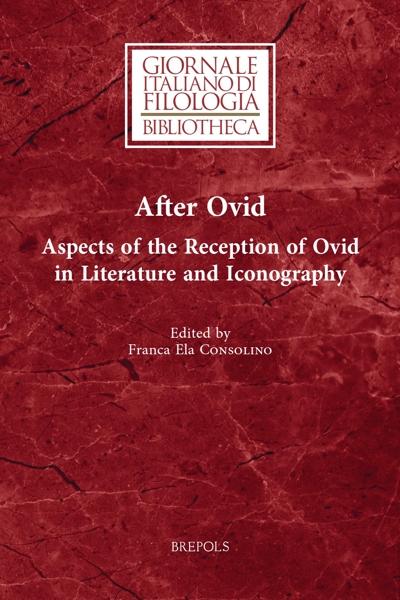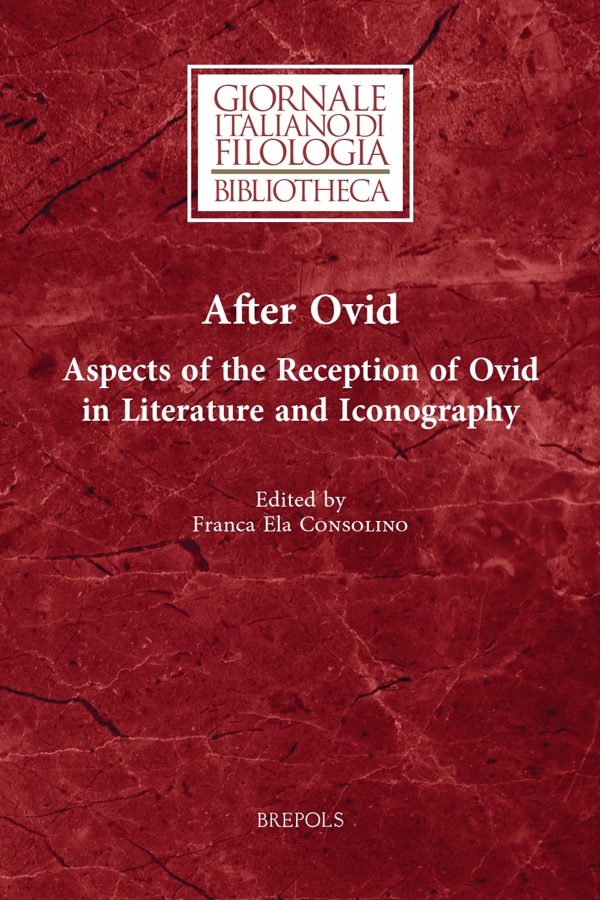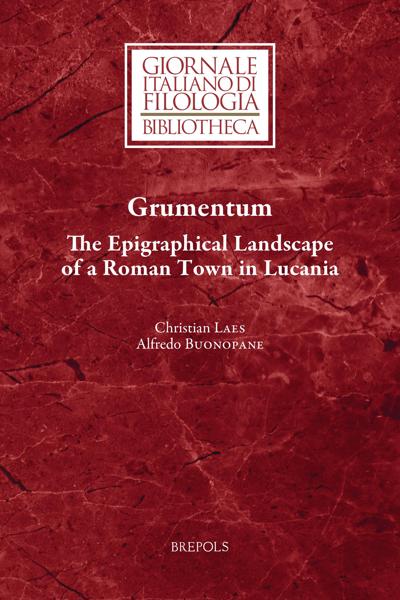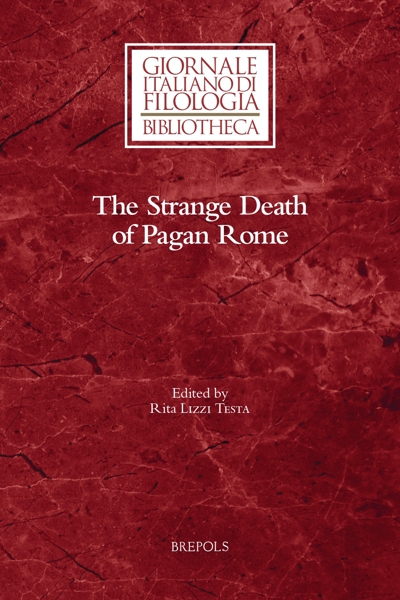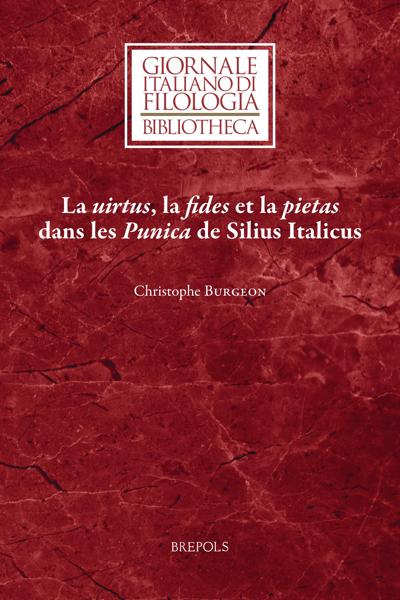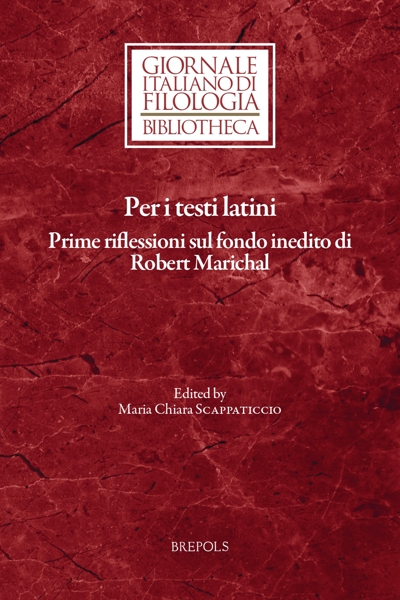
- Pages: 374 p.
- Size:156 x 234 mm
- Illustrations:3 b/w, 29 col., 18 tables b/w.
- Language(s):English, Italian
- Publication Year:2022
- € 75,00 EXCL. VAT RETAIL PRICE
- ISBN: 978-2-503-59250-3
- Paperback
- Available
- € 75,00 EXCL. VAT RETAIL PRICE
- ISBN: 978-2-503-59269-5
- E-book
- Available
Studies on the reception of Ovid in literatures and the visual arts from Late Antiquity to the eighteenth century
“La pluralità di temi e testi discussi nei contributi del volume restituisce così al lettore un quadro innovativo, e insieme esaustivo, dell’importante, quanto sfaccettata, fortuna del testo ovidiano dall’antichità alla modernità in tutti gli ambiti artistici e senza forzature o appiattimenti sul solo lavoro di scavo intertestuale e stilistico-letterario. Un quadro che ha inoltre l’innegabile pregio – sia per contenuto, che per rigore metodologico – di integrare le molteplici proposte esegetiche emerse dalle numerose iniziative legate alla celebrazione del bimillenario ovidiano, illuminando aspetti ancora poco (o solo parzialmente) indagati dalla critica precedente e aprendo nuove e promettenti linee di ricerca con un’importante impronta multidisciplinare.” (Luciana Furbetta, in Euphrosyne. Journal for Classical Philology, 51, 2023, p. 495)
"In conclusione, il volume raccoglie una grande varietà di contributi che, grazie a un apprezzabile abbinamento di analisi di dettaglio e visioni d’insieme, dà conto dell’ampiezza del tema afffrontato." (Maria Jennifer Falcone, in Athenaeum, 112/2, 2024, p. 650)
"Nel complesso il volume, nella varietà degli argomenti affrontati, offre una serie di importanti contributi su diversi aspetti della ricezione di Ovidio ed è testimonianza della sempre maggiore vitalità di tale ambito di ricerca." (Francesco Ursini, in Latomus, 84/1, 2025, p. 161)
Franca Ela Consolino is professor of Latin language and literature at the University of L’Aquila. Her research is focused on literary, historical, and philological aspects of Latin literary production in Late Antiquity and the early Middle Ages, with contributions on profane and Christian authors, literary genres, and cultural milieus. She is also the author of several essays dealing with the Christianization of Roman female aristocracy.
The 2000th anniversary of Ovid’s death, in 2017–2018, led to an upsurge in conferences and publications dedicated to the author’s work and afterlife. One of these is the present volume, resulting from the conference Dopo Ovidio. Aspetti della ricezione ovidiana fra letteratura e iconografia, which was held on 7–8 May 2019 at the Department of Human Sciences (DSU) of the University of L’Aquila, and which looked at various aspects of Ovid’s fortune, from a diachronic and interdisciplinary perspective. The contributions cover a period of about fourteen centuries, from late antiquity until the end of the eighteenth century, and range from late Latin to medieval literature, from humanistic production to modern English and Italian literature, and from linguistics to the figurative arts. All these studies contribute to a collective appraisal of the multifarious impact of Ovid’s works, and especially of the Metamorphoses, the latter’s treatment of myth having been a starting point for integrations, developments, (re)interpretations and representations, in isolation or included in an iconographic program.
Preface
Ovidian Presences in Prudentius’ Psychomachia (Stefania Filosini)
Ovid in Reposianus and the Complexity of Reception (Maria-Pace Pieri)
Allusions to and Quotations from Ovid in the Writing of Isidore of Seville (Donato de Gianni)
Geoffrey’s musa iocosa: the Vita Merlini as an 'Ovidian' Poem (Francesco Marzella)
Il distico della commedia elegiaca latina. L’eredità di Ovidio (Lucio Ceccarelli)
Moving through the Metamorphoses. The Linguistic Encoding of Motion in Ovid and his Translators (Luisa Corona)
The Reception of the Ovidius moralizatus in Northern Italy in the Late Middle Ages (Giuseppa Z. Zanichelli)
The Myth of Narcissus in Painting and Sculpture in the Sixteenth and Seventeenth Centuries: Some Reflections (Michele Maccherini)
Ovid and the Aerial Metamorphoses Painted by Sebastiano del Piombo in the Loggia di Galatea (Costanza Barbieri)
The Fortunes and Misfortunes of Vulgarized Editions of Ovid’s Metamorphoses in Italy and Spain (Giuseppe Capriotti)
Folengo and Ovid: the Tempest in the Canto di Giuberto (Fabiola Bartolucci)
Mark Alexander Boyd and Ovid’s Heroides. Lavinia’s Epistle to Turnus (Franca Ela Consolino)
Ovid in the Old World and the New: the Metamorphoses as Interpreted by George Sandys (Enrico Botta)
“Orrendo a un tempo ed innocente amore”: the Ovidian Myrrha in Italian Literature (Valeria Merola)
